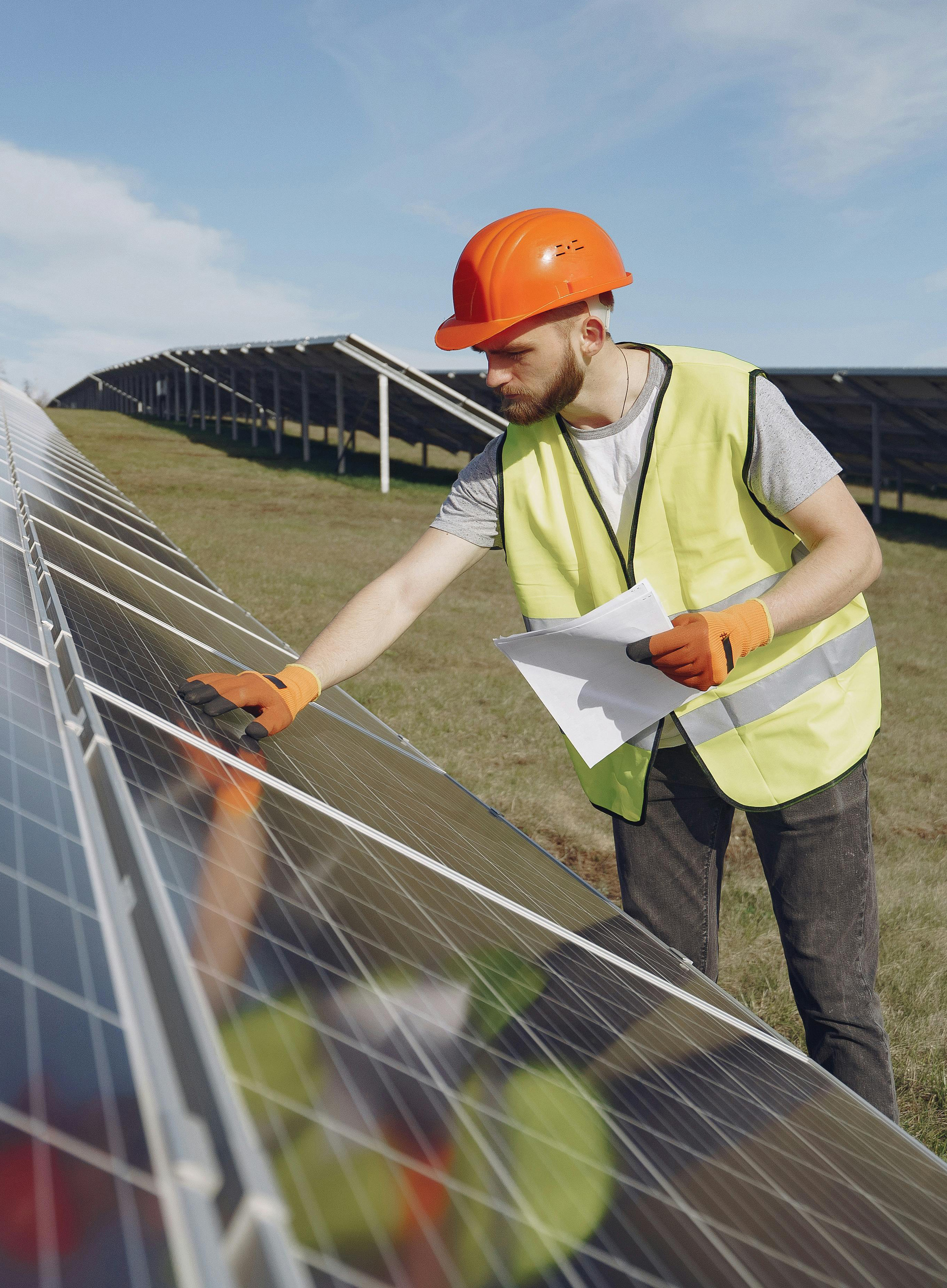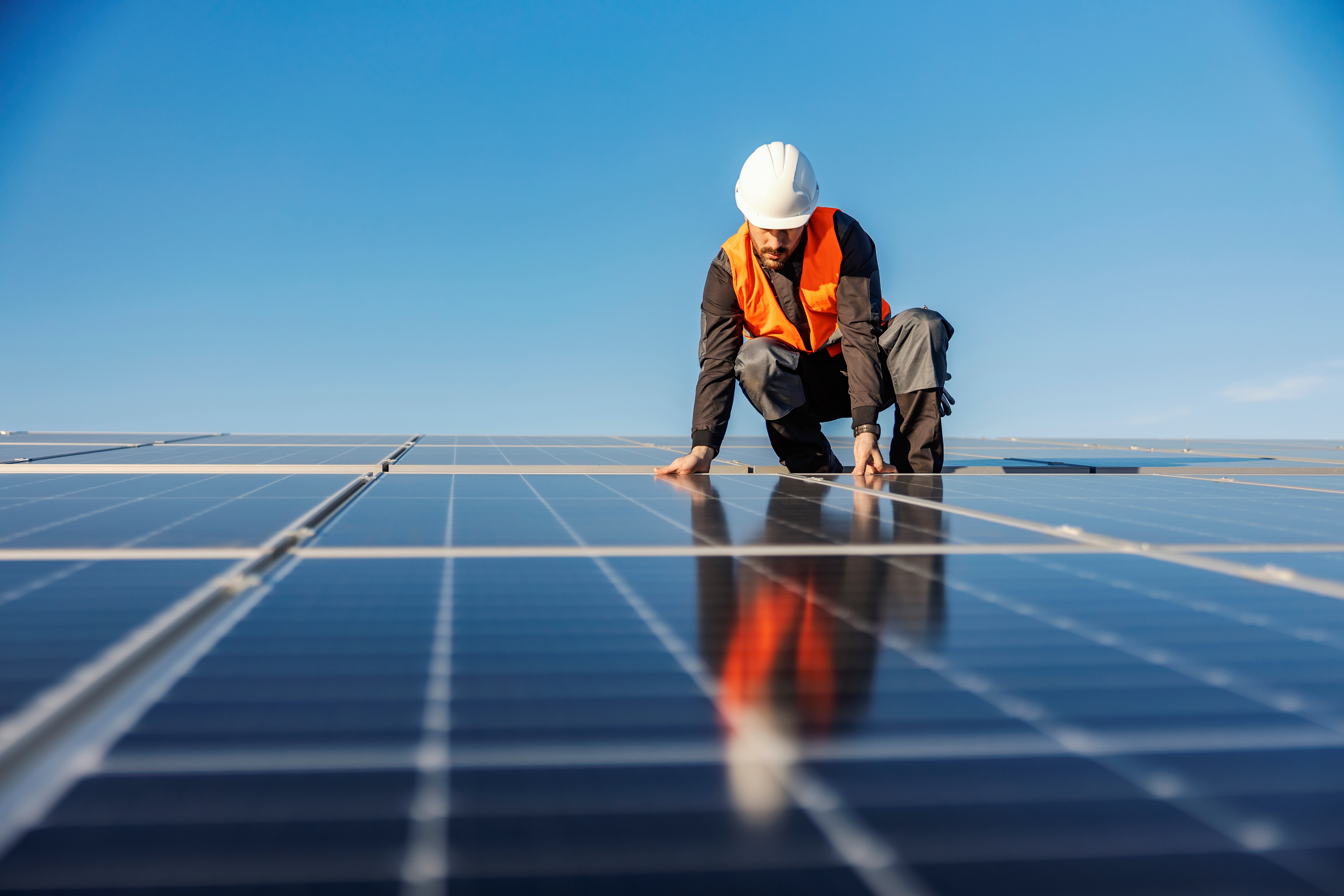This portable solar power meter is used to measure the amount of solar irradiance in watts per square meter (W/m²) or BTU/(ft²xh).
This portable solar power meter is used to measure the amount of solar irradiance in watts per square meter (W/m²) or BTU/(ft²xh).
This lightweight, durable, and easy-to-use solar power meter is essential for maximizing the efficiency of solar panel systems. The digital display provides real-time data on the amount of energy being received by solar panels, making it easy to monitor performance, identify or troubleshoot issues and track progress. The R8180 features a high-precision sensor, data hold, and min/max functions and is ideal for use by solar panel installers and maintenance teams.
Features
Are you considering installing a solar panel system? Or seeking ways to enhance an existing setup? Or interested in knowing more about what's involved with this very hot topic? As part of our mission to provide you with answers to your questions, we've put together this short, yet informative piece explaining how understanding the dynamics of solar efficiency is your new prerequisite.

Figure: A technician examining a solar panel.
Solar Power Research for Optimal Placement:
Before laying a single panel, the goal is the perfect placement for your solar array or solar water heater. Solar Site Assessments lend themselves to identifying locations that receive maximum sunlight, tilt, and shading, factoring in seasonal changes and potential obstructions. This crucial step in the planning phase ensures your solar installation performs optimally over its lifetime. Even post-installation, assessments of the above factors still come into play. Shifting weather patterns can warrant a shift in your solar array placement, meriting a reassessment.
Precise Solar Radiation Measurements:
Post-installation, monitoring solar radiation is vital for maintaining peak efficiency. Regular solar radiation measurements help to understand the actual performance of your solar panels compared to expected output. It's essential for diagnosing any efficiency issues and making adjustments to optimize power generation.
Skipping solar radiation measurements compromises the ability to make informed decisions about solar panel installation, leading to inefficiencies, increased costs, and potentially (but very likely) lower returns on solar energy investment.
A solar radiation power meter is necessary and plays a crucial role in the solar site assessment process. Its importance stems from the need for precise, localized data on solar irradiance — the amount of solar power received per unit area, typically measured in watts per square meter (W/m²).
The truth is there are several reasons why a solar radiation power meter is indispensable, but in essence, it is a fundamental tool in both the planning and operational phases of a solar panel system. It ensures that installations are based on solid data, leading to efficient, reliable, and economically viable solar energy production.

Conduct solar site assessments to ensure optimal panel placement and efficiency.
Regularly monitor solar radiation to maintain peak performance and make necessary adjustments.
Use a solar radiation power meter for accurate data on solar irradiance, crucial for effective planning and operation.
| Measuring Range | 0 to 1999W/m² 0 to 634BTU/(ft²xh) |
| Accuracy | ±10W/m²; ±3BTU/(ft²xh) or ±5% whichever is greater in sunlight Additional temperature included error ±0.38W/m²/°C; ±0.12BTU/(ft²xh)/°F (°C) from 77°F (25°C) |
| Angular Accuracy | Cosine corrected <5% for angles <60° |
| Resolution | 0.1, 1 |
| Response Time | 250mS |
| Display | 3½-Digit, LCD |
| Data Hold | Yes |
| Min | Yes |
| Max | Yes |
| Auto Zero | Yes (Adjustment Screw) |
| Overrange Indicator | Yes ("OL") |
| Tripod Mountable | Yes |
| Power Supply | 9V Battery |
| Product Certifications | CE, EMC Compliant, Conforms to EN61326-1 |
| Operating Temperature | 41 to 104°F (5 to 40°C) |
| Storage Temperature | 14 to 140°F (-10 to 60°C) |
| Operating Humidity Range | 10 to 80% |
| Dimensions | 5.2 x 2.4 x 1.5" (132 x 60 x 38mm) |
| Weight | 5.3oz (150g) |
Click on a category to view a selection of compatible accessories with the REED R8180 Solar Power Meter.
| Measuring Range | 0 to 1999W/m² 0 to 634BTU/(ft²xh) |
| Accuracy | ±10W/m²; ±3BTU/(ft²xh) or ±5% whichever is greater in sunlight Additional temperature included error ±0.38W/m²/°C; ±0.12BTU/(ft²xh)/°F (°C) from 77°F (25°C) |
| Angular Accuracy | Cosine corrected <5% for angles <60° |
| Resolution | 0.1, 1 |
| Response Time | 250mS |
| Display | 3½-Digit, LCD |
| Data Hold | Yes |
| Min | Yes |
| Max | Yes |
| Auto Zero | Yes (Adjustment Screw) |
| Overrange Indicator | Yes ("OL") |
| Tripod Mountable | Yes |
| Power Supply | 9V Battery |
| Product Certifications | CE, EMC Compliant, Conforms to EN61326-1 |
| Operating Temperature | 41 to 104°F (5 to 40°C) |
| Storage Temperature | 14 to 140°F (-10 to 60°C) |
| Operating Humidity Range | 10 to 80% |
| Dimensions | 5.2 x 2.4 x 1.5" (132 x 60 x 38mm) |
| Weight | 5.3oz (150g) |
Click on a category to view a selection of compatible accessories with the REED R8180 Solar Power Meter.